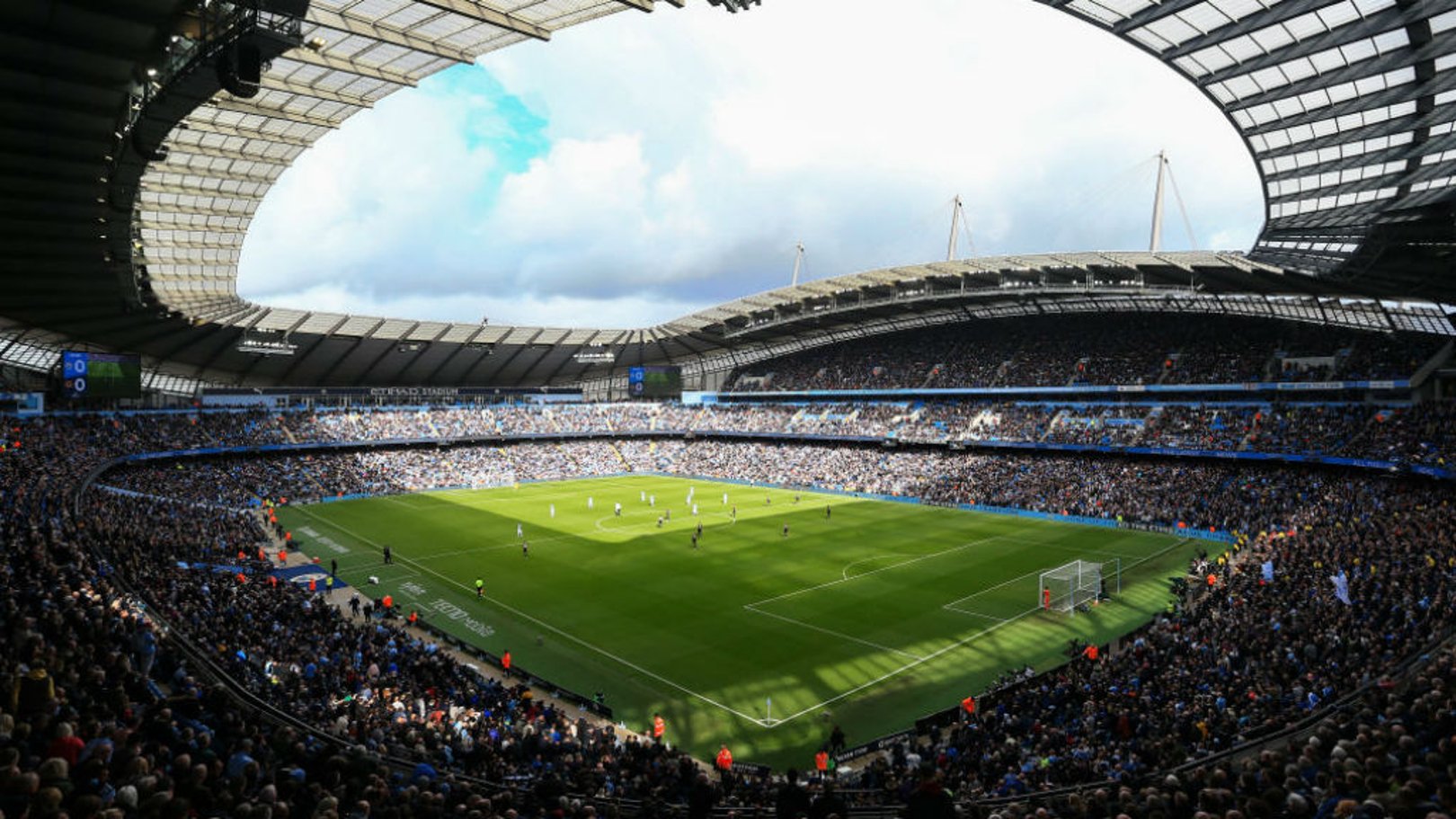It’s a sobering and challenging scenario for all City players, staff, supporters and society in general.
In an effort to gain some insights into how best to try and find ways of coping, club journalist Neil Leigh spoke to acclaimed sports psychologist Professor Damian Hughes about how we can all seek to best navigate the current scenario.
Damian, many thanks for your time. Given your expertise and knowledge within the field of sports psychology, are there any specific coping strategies you would recommend which could help make life a little less stressful for us all in the current climate?
“Definitely. One of the key tenets in sports psychology is learning to control the controllable.
“If you think about so much of what is happening at the moment, it falls into the category of uncontrollable.
CITY+ | Free to Cityzens until football is back
DAVID SILVA Made in Gran Canaria
“We don’t control the pandemic, we don’t control what is going to happen to it, we don’t control what the government is going to decide.
“There is a lot of stuff that makes you feel out of control and may induce a sense of panic or fear.
“So, I think you need to ask yourself: What elements do I control?
“And here there is some really basic stuff.
“In terms of media you choose to consume, how you choose to speak about it, who you choose to speak about it with; how you choose to behave and conduct yourself… all those things are within your remit.
“It’s also interesting to see panic buying. In a way, it’s all understandable as it is our very primitive survival instincts kicking in. We are seeing people go into freeze, flight or fight mode, they are buying more than they need.
“All of that is an example that when things feel out of control, our behaviours quickly follow as well.”
Everyone is acutely aware of the importance of looking after our mental health and, in the absence of football and other key drivers in our lives, this will become even more vital. Have you any recommendations for us all as to managing that side of our health?
“There is a saying that nature abhors a vacuum and the gap in the sporting calendar has left a huge vacuum for a lot of people, so it’s about what you choose to fill it with.
“I’d encourage people to take time and reflect on that.
“Avoid excessive over-use of social media, as it can distract you and take you down rabbit holes. Instead, give yourself a time limit and be mindful of which channels you use.
“Also be mindful of who you end up listening to within your social circle.
“It’s an old saying that we are the sum of the five people we spend most time with.
“And we are going to be forced to spend time with a narrow circle of people during this time, so make sure the messages you receive are accurate and useful and add something and are helpful rather than being unhelpful.
“Look at the books you read and TV programmes you consume but don’t talk about whether they are right or wrong; ask yourself ‘Is it helpful or unhelpful?’
“There is no right or wrong but ‘Is this helping my state of mind or is it unhelpful’?
“And, obviously within the current restrictions, do get out for your daily session of exercise. Don’t underestimate the benefit of a gentle walk - the endorphin release is something really powerful.”
For a great many people, the thought of self-isolation will be a scary prospect. Can our passion for City in particular and football in general still play its part in helping us manage through this uncertain period?
“As City fans, you are part of a special tribe or community.
“For people worried about the impact of isolation, there is an element of common ground in that everybody in your community is going through the same challenge.
“We are all going through the same withdrawal so having that sense of common identity with other fans can be a really useful aid at this time.
“That’s where social media can be a useful aid here. As City fans you can see the players posting what they are up to and know that you are in the same boat as the people who you go and watch each weekend.
“A virus like this is a great leveller.
“It’s no respecter of health, wealth, status or celebrity - everyone is currently confronted with the same stark reality.
“And that shows that we really are all in this together.”
Being almost totally confined to the home will be a major challenge for many people. Any tips as to how best to deal with that situation?
“There are some key things we can do, the most important of which is to have a structure.
“We are creatures of habit. During the normal working day we will be required to make about 10,000 decisions, and we know that 236 of those are based just on the food and drink we consume, so we are constantly having to make decisions.
“To cope with that we have developed a mental model to help us navigate through the day to stop us thinking too deeply.
“So, if we go to a coffee shop, we order the same drink, we take the same route into work and so on… the point being that we are habitual creatures and love doing the same things.
“There is a danger then that if you remove that structure, it can create confusion, and loss and uncertainty. So, make sure you establish a new routine for your day.
“Whether it’s the time you get up, the time you go in the shower… whatever it is, make sure it’s consistent.
“Ensure that lunchtime is always at a similar time, and that the close of the day also follows a pattern. Your brain will naturally fit into these structures and thank you for it.
“But do include elements of variety too.
“As well as watching TV, maybe read a book, and try to limit your browsing, but mix your activities up too so while we do have routines, make sure there is a lot of variety to help keep you stimulated.”
Obviously, with football suspended, a huge void has been left in people’s lives. Football fans have rituals, habits, superstitions etc, that help get them through the week, and it’s a vehicle that provides friendship, support and belief. Can you explain that, and the possible effects of that being deprived?
“We know from a concept called the self-determination theory that what helps keep us all stable are three key elements to our lives.
“One is having some kind of value, so that we have something to contribute, a second big part is having an element of control, the third is a sense of belonging - the idea we are all plugged into a wider community.
“If you think of this current period, there is a threat to all three of those elements.
“The element of value means if you are not able to get out there and do your job that some people use to define themselves by then you can feel threatened.
“So, again, I’d encourage people to not just view themselves by the nature of their job, but remind yourself of the value that you have as a partner or as a parent or a sibling or as a son or daughter and think about how you can add value from that sense of identity.
“The stuff on the idea of a sense of control we’ve spoken earlier, about the importance of establishing routines and in focusing on what you can do.
“As for the third idea of plugging into a community, this is really, really key.
“For fans, whether it’s about the group you go to a match with or if you follow them on social media or are part of fans’ groups or online forums, it’s this idea of reminding yourself that this will pass and you are still a key part of that special community .
“Try and find ways to plug into that. If you’re a City fan and know that someone down the road is a fellow Blue – reach out and let them know that sense of kinship is there.”
Can we still foster a football sense of community in this current scenario?
“The idea of just helping a fellow City fan is a nice way of looking at that but also it’s about just helping anybody. In a way, this a time to forget tribal loyalties.
“You can zoom in and say we’re the Altrincham or Ardwick branch of a City supporters branch, or you can zoom out and say that we are all football fans.
“It’s about finding that kinship with another human being and football offers us a really powerful way to do that.
“Regardless of who we follow in routine seasons, right now we are in this together – ultimately, we are football fans together and still have common grounds to debate.”
Finally, do you have any other tips or recommendations as to how we can all make the best of this hugely challenging situation?
“I think the best way to look at this now is by having an optimistic mindset.
“Optimism doesn’t assume that everything is amazing, sometimes things do go wrong but we know it will pass.
“Optimism also gives us a sense of perspective, a sense that this situation can improve and can get better.
“Also, just take a few moments out of the day to appreciate the things that you do have rather than focusing on the things you don’t.
“That also just helps foster that sense of optimism.
“But the best thing I would encourage people to look at is the idea of being kind.
“And start that by being kind to yourself… from there you can then offer an element a kindness to others.
“When I hear people say we need to be resilient, I’ve never met anyone who needs to be resilient in the face of kindness, decency, understanding and empathy.
“I’ve met many people who need to be resilient if they are working with unpleasant, cruel people - I get the need to armour plate themselves then - but not when people are kind and understanding.
“That’s probably the biggest virtue that will get us all through this testing time by starting by being kind to ourselves.
“If you are scared or nervous or overwhelmed, that is OK and that’s what I mean by being kind.
“Don’t beat yourself up for feeling like that. It’s not a weakness
“When you reach that level of acceptance, that’s where the level of optimism comes in.”
Look out for part two of our special interview with Professor Damian Hughes where he examines the challenges for the City players and coaches during the current scenario.
Professor Damian Hughes is the author of several acclaimed books, including ‘How to Change Absolutely Anything.’ He has also just launched a weekly podcast with BT Sport presenter Jake Humphrey entitled ‘The High-Performance Podcast’












